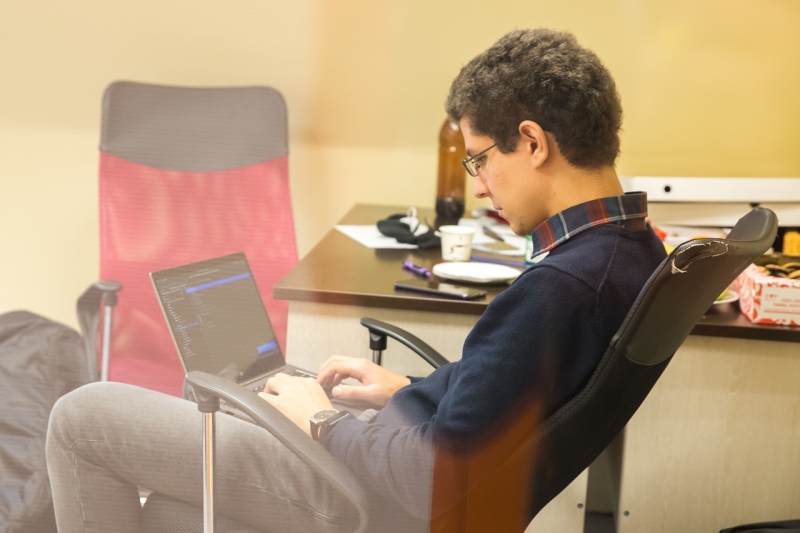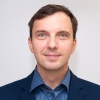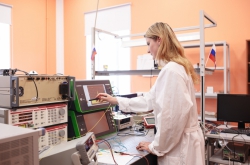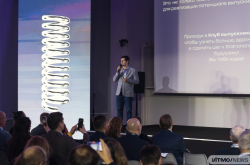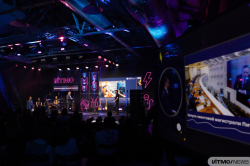The main aim of the program “Industrial Programming Technologies” is to train specialists capable of working in the topical fields of developing software for major businesses.
As noted by Dmitry Muromtsev, head of the program and the international laboratory “Intelligent Information Processing Methods and Semantic Technologies” and associate professor at the Faculty of Software Engineering and Computer Systems, starting from this year the program acquired the status of a corporate Master’s program and is implemented in partnership with the international company T-Systems.
The company is part of the German concern Deutsche Telekom, one of Europe’s largest telecom corporations. According to the company’s specialists, the main focus of T-Systems is the development of software for Deutsche Telekom and major international clients working in a wide range of fields, from the automotive industry to telecommunications, financial sector, retail, energy and engineering. Among them are such companies as Volkswagen, Mercedes-Benz, BMW, MAN, DHL, Swiss Federal Railways (SBB) and others.
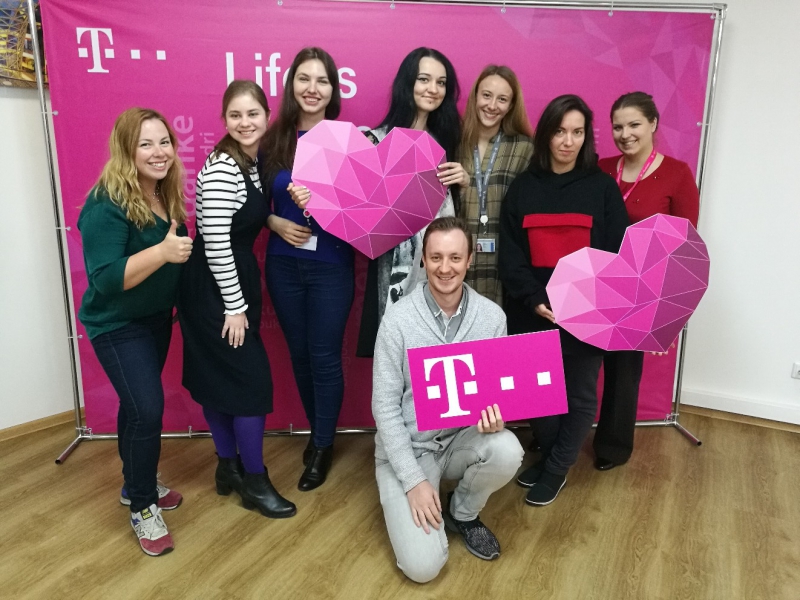
“Of course, cooperation with such a major company opens a considerable number of opportunities. Above all, this means access to the most cutting-edge programming technologies currently used in the international market, as well as international work standards which, in my opinion, are absolutely crucial for modern specialists to master,” comments Dmitry Muromtsev.
Anton Vorobyev, head of Innovations Department at T-Systems Russia, agrees that the collaboration between the company and the university will allow for the training of in-demand IT specialists.
“Nowadays, working in the field of IT calls for more than to just be a tech expert and know one or several programming languages,” notes Anton Vorobyev. “Coming to the fore are the understanding of the business sphere of a company, the methodologies and unique software development processes that it uses, and a candidate’s abilities to understand and adopt its corporate culture and values. I believe that the joint program will allow us to train specialists who are capable of becoming productive (i.e. generating real-world business value) company employees without complex and lengthy adaptation period.”
Education process
The program’s curriculum includes such subjects as automatic natural language processing, data integration in information systems, software engineering methodology, non-classical logic, data presentation design, and others.
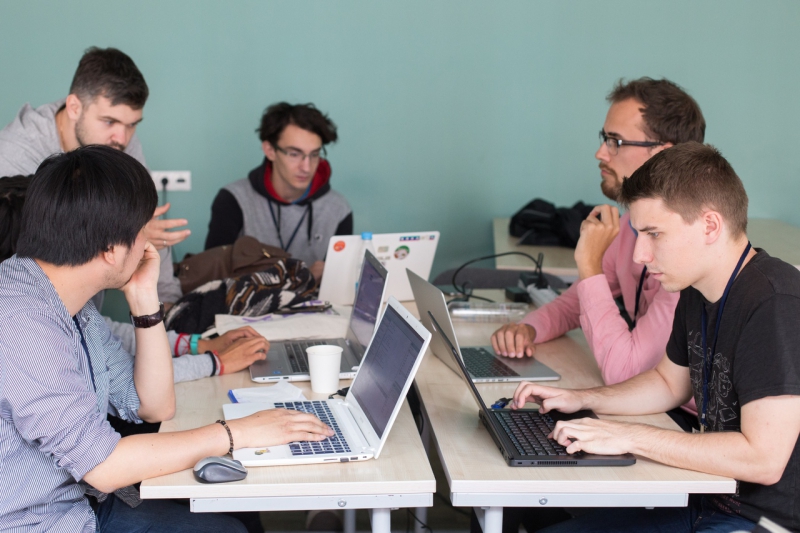
As a result of their studies, the program’s graduates should be able to correctly apply high-level formal methods and approaches in software development; design information systems and their components based on semantic technologies, as well as intelligent systems for analyzing and synthesizing natural language; and to verify software models using metamodeling methods. According to the program’s developers, these skills will allow the graduates to successfully conduct the development of industry-specific software.
However, as noted by Dmitry Muromtsev, in-depth theoretical training and mastering of basic technologies are not enough, as working on real-world tasks often involves solving non-formalized tasks.
“The essence of the program is not to train a good specialist but to make our graduates capable of solving innovative, creative tasks,” says Prof. Muromtsev. “For example, only a year ago our partner and we hosted a hackathon dedicated to blockchain. The event brought together 15 teams, and not all of them came from ITMO University. In my opinion, this amounts to a great result and a very useful experience that confirmed the company’s interest in unconventional solutions.”
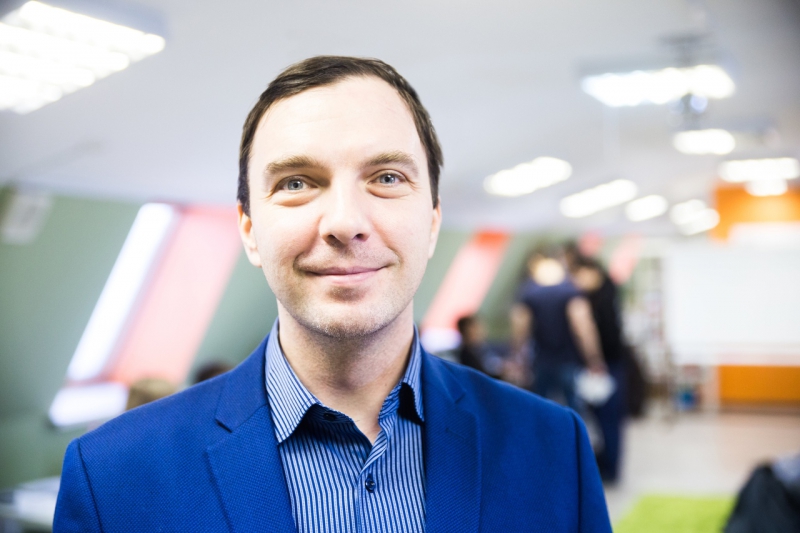
As of now, the staff of T-Systems consists of over 50,000 employees in 22 countries all over the world. The Russian branch, T-Systems Russia, is staffed by 2,000 people. The Russian software development center runs over 100 projects in offices located in St. Petersburg, Voronezh and Moscow. According to Anton Vorobyev, the company especially values specialists who have a high-level command of fundamental knowledge and technical competencies, can communicate effectively, think outside of the box and are able to adapt to fast-changing environments, be it a new team, client’s demands or technological trends on the market.
“What we expect from the students are, first and foremost, confident knowledge of fundamental disciplines such as maths and algorithms theory, knowledge of special-focus subjects such as programming languages and software development concepts, and at least intermediate-level command of the English language. Of course, we also value a candidate’s motivation to work and develop,” emphasizes the representative of the company.
Other opportunities available to students
T-Systems Russia has recently hosted a meeting with students at which the company representatives spoke about the opportunities of participating in internships and writing theses on the company’s basis. Attending student of the “Industrial Programming Technologies” Master’s program Usman Kamalutdinov shared his career plans with ITMO.NEWS. He says he is especially interested in projects connected to IoT and AI.

“Above all else, I chose this program because I wanted to develop in something adjacent to data analysis and the Internet of Things. Another important factor was the program’s partnership with a major international company,” says Usman. “I plan to do an internship at T-Systems this winter, although it may be possible for me to join the company even earlier than that if I manage to join some project there. Going forward, I see myself working in the field of IT, but I haven’t decided on the specifics yet. I hope that having graduated from the “Industrial Programming Technologies” Master’s program at ITMO, I will become an in-demand IT specialist.”
The representatives of T-Systems highlight that one of the main objectives set as part of the Master’s program is to provide students with the opportunity to experience working at a major company as early as during their studies.
What is more, internships at the company, participation in real-world projects and mentor support from their senior colleagues will allow the program’s students to write a successful thesis on a relevant topic.
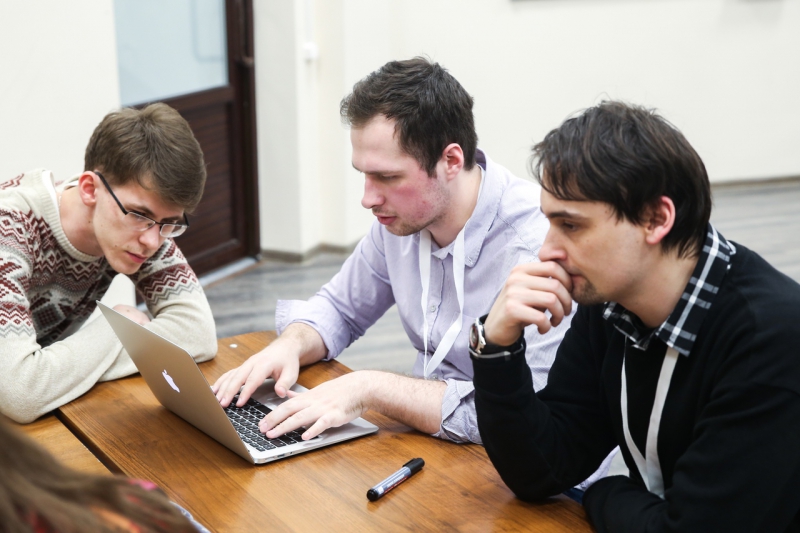
“This Master’s program unites ITMO University’s competencies with the practical experience of T-Systems, the leading St. Petersburg employer in the field of IT. Students can be sure that the subjects taught as part of the program, as well as the topics of their Master’s theses, fully meet the market’s demands. We see great potential in the theses students will write on our topics. On our part, we are willing to provide them with all possible support from setting research tasks to supplying them with the necessary resources,” concludes Anton Vorobyev.
